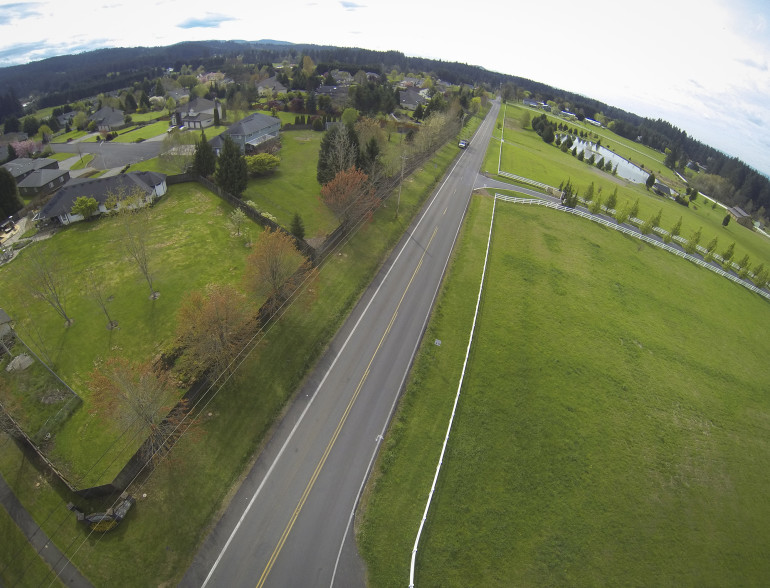Clark County’s growth plan continues to violate state law despite the county’s efforts to come into compliance with a state land-use board’s decision, according to arguments laid out in recent legal filings from two environmental groups.
The documents filed by Friends of Clark County and Seattle-based Futurewise with the Growth Management Hearings Board last week are part of an ongoing battle over how to manage growth in the county. The documents argue that Clark County’s comprehensive plan still continues to facilitate sprawl and provides inadequate protections for agricultural land in violation of the state’s Growth Management Act.
In summer of 2016, the Clark County council passed an update to the county’s comprehensive plan, a document required by the Growth Management Act to direct growth and land use. Shortly after it was passed, it was appealed by the two groups to the growth board, a quasi-judicial panel. In March, the growth board issued a 101-page decision that largely backed the county but still sided with the two groups on some issues.
The board is scheduled to hold a compliance hearing next month and recent filings outline each side’s position. Here’s what they argued.
Zoning for agriculture and forest land
In its decision, the growth board had found that the county erred in reducing the minimum lot size of agricultural lots from 20 acres to 10 acres and of forest lots from 40 acres to 20 acres.
Christine Cook, Clark County senior deputy prosecutor, noted in her filing that the county council adopted a moratorium to prevent further applications or zone changes for land divisions in those zoning designations. She also noted that the county also repealed the zoning changes.
In response, Tim Trohimovich, attorney for Friends and Futurewise, wrote that the rezones are still not sufficient to comply with state law “because the minimum lot sizes will not conserve natural resource lands.”
“As the Board correctly found, it is the large farms in Clark County that produce the greatest economic benefit to the County and its residents,” wrote Trohimovich.
In the filing, he further argued that smaller farms are more expensive to operate and that the higher costs may cause farmers and foresters to convert the land to other uses. He also wrote that the county’s zoning allowed an array of non-agricultural and non-forestry uses including residential subdivisions, commercial kennels, private recreation facilities, oil and gas processing facilities, mausoleums and others.
Any development that’s vested in these areas violates state law, he wrote.
Small-city expansions
The growth board had also found that the county erred in allowing expansions of urban growth areas, land outside of cities where urban growth is directed. The board found that the county imperiled farmland by allowing for expansions of urban growth areas outside of Ridgefield, La Center and Battle Ground. It also concluded that the expansions weren’t needed to accommodate growth and that the residential growth had occurred at lower-than-planned-for densities, contributing to sprawl.
Cook wrote that Clark County had reversed the expansion of Battle Ground’s urban growth area and each city has adopted measures to increase density.
“Development in none of the cities can be described as sprawling, low-density development,” she wrote. “Rather, the cities are developing efficient, urban densities.”
She further wrote that because Ridgefield and La Center completed annexations of urban growth areas, the county no longer has authority for planning or growth management purposes over them and the issue is “moot.” The county has appealed this aspect of the growth board’s decision.
Trohimovich wrote that although the county is in compliance with regard to Battle Ground, he took issue with each city’s effort to increase density.
He also disagreed that the issue over the annexed land is “moot.”
“The two UGA expansions have no legal effect,” he wrote. “It is the same as if Clark County had never adopted them.”
Rural industrial land bank
The growth board had ruled that the county erred in creating a rural industrial land bank on agricultural land, partially on grounds that it didn’t designate a maximum size.
The county is appealing the board’s decision regarding the land bank. But over the summer, the county council addressed part of the board’s concern by establishing a 700-acre maximum size for the land bank. Cook wrote that this remedies this specific issue.
But Trohimovich responded by writing that the rural industrial land bank still violates state law because it would occur on agricultural land of long-term commercial significance. He also asked the board to go further on this issue.
“So the board must continue the finding of noncompliance and report the violation to the Governor for the imposition of sanctions,” he wrote.




